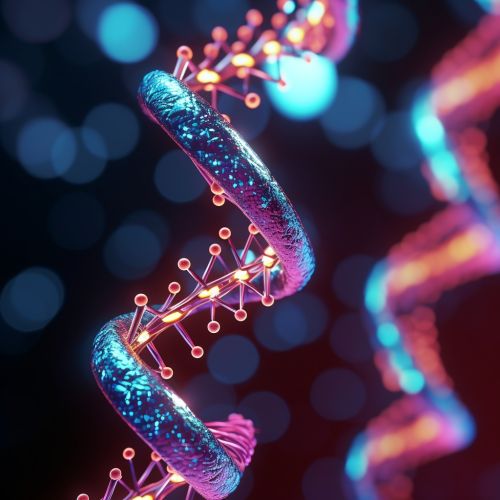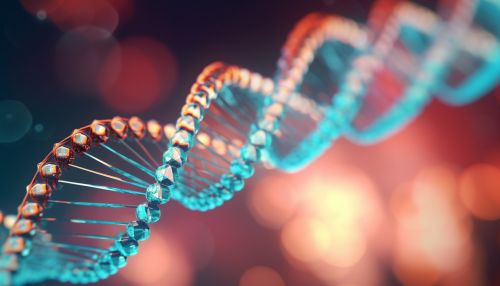Nucleotide Metabolism
Introduction
Nucleotide metabolism is a vital process in the body that involves the synthesis and degradation of nucleotides, which are the building blocks of nucleic acids such as DNA and RNA. This process is crucial for the growth and development of all organisms as it plays a significant role in cell division, genetic information processing, and energy conversion.
Nucleotide Synthesis
Nucleotide synthesis is a complex process that involves several steps and enzymes. It can occur through two pathways: the de novo pathway and the salvage pathway.
De Novo Pathway
The de novo pathway involves the synthesis of nucleotides from simple molecules. This pathway is energy-intensive and requires several enzymes. The process begins with the formation of a molecule called phosphoribosyl pyrophosphate (PRPP), which is synthesized from ribose-5-phosphate by the enzyme PRPP synthetase. PRPP then reacts with glutamine and water to form 5-phosphoribosylamine, a reaction catalyzed by the enzyme amidophosphoribosyltransferase. This reaction is the rate-limiting step in the de novo synthesis of purine nucleotides.
Salvage Pathway
The salvage pathway involves the recycling of free bases and nucleosides that are produced during the degradation of RNA and DNA. This pathway is less energy-intensive compared to the de novo pathway. The enzymes involved in the salvage pathway include hypoxanthine-guanine phosphoribosyltransferase (HGPRT) and adenine phosphoribosyltransferase (APRT), which catalyze the conversion of free bases into nucleotides.
Nucleotide Degradation
Nucleotide degradation is a process that breaks down nucleotides into their constituent parts. This process is necessary for the recycling of nucleotides and for the elimination of excess nucleotides from the body. The degradation of purine nucleotides results in the production of uric acid, which is excreted in the urine. The degradation of pyrimidine nucleotides, on the other hand, results in the production of beta-amino acids and carbon dioxide.
Regulation of Nucleotide Metabolism
The regulation of nucleotide metabolism is crucial to ensure a balance between the synthesis and degradation of nucleotides. This balance is necessary for the normal functioning of cells and for the maintenance of genetic integrity. The regulation of nucleotide metabolism involves several mechanisms, including feedback inhibition, allosteric regulation, and gene regulation.
Clinical Significance
Abnormalities in nucleotide metabolism can lead to a variety of diseases, including genetic disorders, cancer, and viral infections. For example, deficiencies in the enzymes involved in purine metabolism can result in Lesch-Nyhan syndrome, a genetic disorder characterized by self-mutilation and mental retardation. Similarly, abnormalities in the enzymes involved in pyrimidine metabolism can lead to orotic aciduria, a condition characterized by the excretion of large amounts of orotic acid in the urine.
See Also


